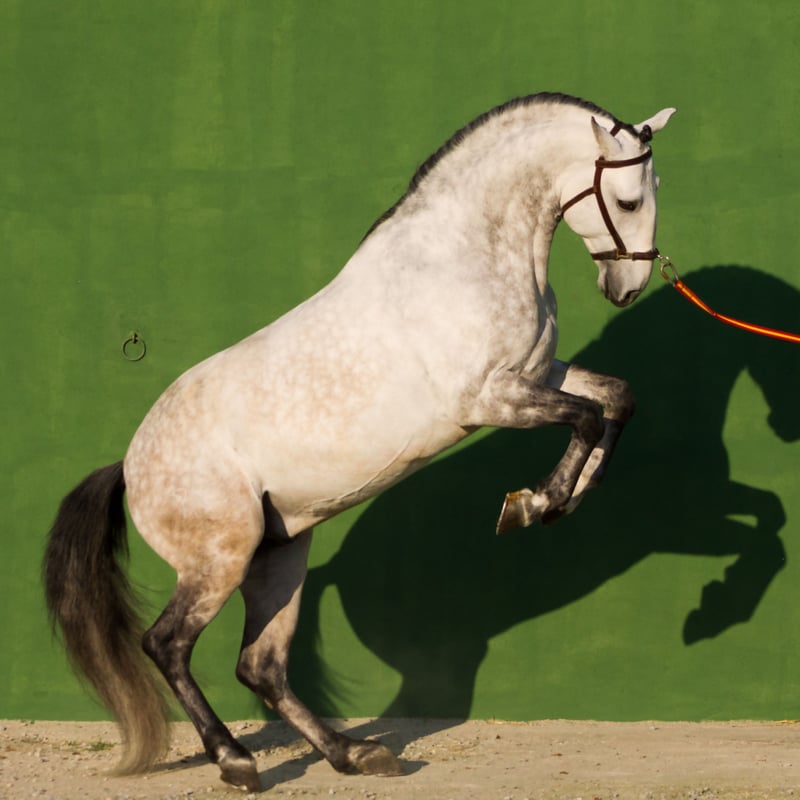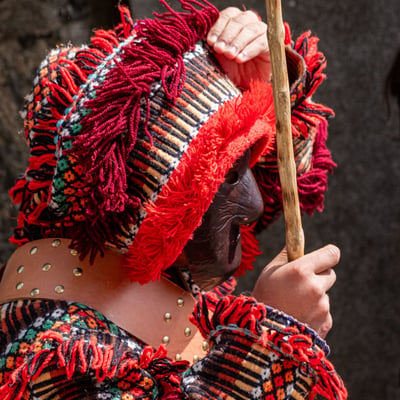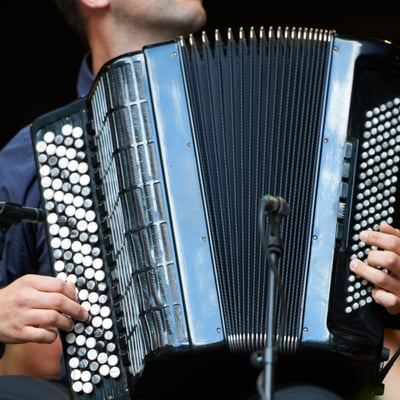1
00:00:00,000 –> 00:00:02,610
PracticePortuguese.com
2
00:00:02,610 –> 00:00:08,730
O cavalo Lusitano é uma raça de cavalo originária de Portugal.
{{The Lusitano horse is a breed of horse originating from Portugal.}}
3
00:00:08,730 –> 00:00:16,190
É um cavalo versátil e inteligente, que é conhecido pela sua força, agilidade e elegância.
{{It is a versatile and intelligent horse that is known for its strength, agility, and elegance.}}
4
00:00:16,190 –> 00:00:21,830
A raça foi criada há muitos séculos e tem sido usada com vários propósitos.
{{The breed was created many centuries ago and has been used for various purposes.}}
5
00:00:21,830 –> 00:00:28,700
Uma das principais características do cavalo Lusitano é o seu corpo poderoso e musculoso.
{{One of the main characteristics of the Lusitano horse is its powerful and muscular body.}}
6
00:00:28,700 –> 00:00:32,120
Estes cavalos têm muita força e resistência,
{{These horses have a lot of strength and endurance,}}
7
00:00:32,120 –> 00:00:36,530
o que os torna adequados para atividades exigentes como o toureio,
{{which makes them suitable for demanding activities such as bullfighting,}}
8
00:00:36,530 –> 00:00:39,530
o adestramento e o trabalho de campo.
{{dressage, and field work.}}
9
00:00:39,530 –> 00:00:42,790
Eles também têm um corpo naturalmente ágil e atlético,
{{They also have a naturally agile and athletic body,}}
10
00:00:42,790 –> 00:00:46,760
o que os permite destacarem-se em desportos como o salto.
{{which allows them to excel in sports such as jumping.}}
11
00:00:46,760 –> 00:00:48,980
Além das suas habilidades físicas,
{{In addition to their physical abilities,}}
12
00:00:48,980 –> 00:00:56,950
o cavalo Lusitano também é conhecido pela sua inteligência e disposição para trabalhar com os seus condutores humanos.
{{the Lusitano horse is also known for its intelligence and willingness to work with its human riders.}}
13
00:00:56,950 –> 00:00:59,580
Isso torna-os fáceis de treinar e trabalhar,
{{This makes them easy to train and work with,}}
14
00:00:59,580 –> 00:01:04,740
e são muitas vezes usados em demonstrações e performances equestres.
{{and they are often used in equestrian demonstrations and performances.}}
15
00:01:04,740 –> 00:01:09,800
Em geral, o cavalo Lusitano é uma raça versátil e altamente respeitada.
{{In general, the Lusitano horse is a versatile and highly respected breed.}}
16
00:01:09,800 –> 00:01:13,480
É um elemento importante da cultura e da história portuguesa.
{{It is an important element of Portuguese culture and history.}}
17
00:01:13,480 –> 00:01:22,050
Este animal belo e inteligente é uma escolha popular entre os entusiastas equestres em todo o mundo.
{{This beautiful and intelligent animal is a popular choice among equestrian enthusiasts all over the world.}}
18
00:01:22,050 –> 00:01:23,780
PracticePortuguese.com

 Eduardo
Eduardo











This is the first time I’ve come across tornar, if I’d been trying to express that idea myself I would have used fazer. Could you give me some more examples using tornar please?
Also confused by the difference between ‘os torna’ and ‘torna -os’, is there something in the sentence construction that should alert me to which way to use this?
Olá! *Tornar* is generally a better choice of verb in these contexts where you’re describing features that make something what it is or describe some kind of transformation, although other verbs, to some extent, may also be used selectively. I’ll give some examples with ‘tornar’ and also offer suitable alternatives with other verbs.
– Eu tornei-me mais sociável na idade adulta. = Eu fiquei mais sociável na idade adulta. (I became more sociable in adulthood)
– Este patrocínio torna o projeto viável. = Este patrocínio faz o projeto ser viável (This sponsorship makes the project viable) – note how we also need the extra verb ‘ser’ in the alternative
– Tu tornas-te irritante quando não dormes. = Tu ficas irritante quando não dormes (You become annoying when you don’t sleep)
– Isto torna-as uma boa escolha. = Isto faz delas uma boa escolha. (This makes them a good choice)
About the placement of the object pronoun (‘os torna’ vs. ‘torna-os’), you do need to look for the presence of any ‘magnetic’ words that attract the pronoun to a position before the verb. In this case, it’s the word ‘que’. More on that here: Object Pronouns in Portuguese | Practice Portuguese (section “Position of Object Pronouns).